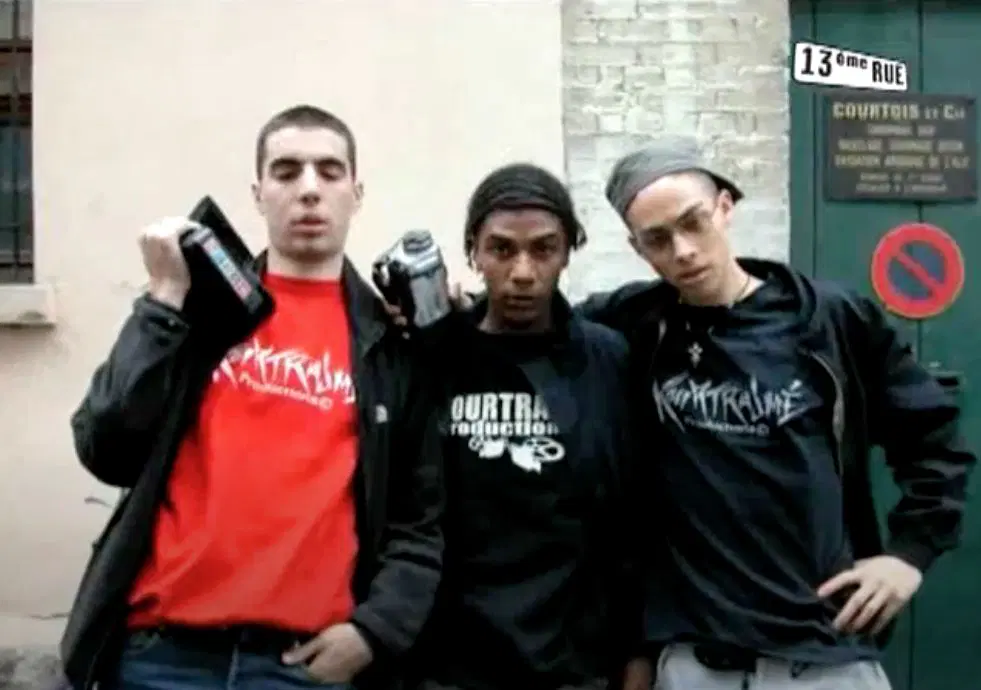Police brutality is a serious and persistent problem that affects many countries around the world, including France. In recent years, several cases of police violence against people of color, immigrants, and minorities have sparked outrage and protests in France, most recently, the June 27, 2023, fatal shooting of a 17-year-old boy named Nahel M. (His last name is being kept out of the press) in Nanterre, the severe injury of a 22-year-old man named Theo Luhaka during an arrest in Aulnay-sous-Bois in 2017, and the death of a 24-year-old man named Adama Traoré in police custody in Beaumont-sur-Oise in 2016.
These cases have also exposed the social and economic inequalities, racism, and corruption that plague French society and fuel the conflict between the police and the residents of marginalized suburbs, known as the banlieues.
French cinema has been a powerful medium to depict and denounce police brutality and its consequences, as well as to explore the complex and diverse realities of life in the banlieues.
Some of the most influential and acclaimed French films on this topic are connected by a common thread: the Kourtrajmé collective, an association of artists, created in 1994 by Romain Gavras, Toumani Sangaré, and Kim Chapiron.

Other notable filmmakers and performers associated with Kourtrajmé include Mathieu Kassovitz, Vincent Cassel, and Ladj Ly.
Kourtrajmé is known for its edgy and provocative style, influenced by hip-hop, graffiti, and urban culture. It has produced several short films, music videos, documentaries, and feature films that deal with social issues, such as police brutality, racism, violence, and marginalization.
Kourtrajmé also has its own film schools (including one in Senegal), which offer free training to aspiring filmmakers from diverse backgrounds.
Films connected by Kourtrajmé
Some of the films connected by Kourtrajmé are: “La Haine” (1995), directed by Mathieu Kassovitz; “Les Misérables” (2019), directed by Ladj Ly; and “Athena” (2022), directed by Romain Gavras.
– “La Haine” follows three young men of different backgrounds in the suburbs of Paris, after a violent protest sparked by the police assault of their friend. The film depicts the anger and frustration of marginalized youth and the hostility and racism of the police.
The film was inspired by real events, like the 1993 killing of Congolese native Makomé M’Bowole, shot at point–blank range during interrogation in a police station, and the riots in Clichy-sous-Bois in 2005. The film showed how police brutality and social injustice could ignite a cycle of violence and resentment in the banlieues.
– “Les Misérables” depicts the tensions between the police and the residents of a working-class suburb of Paris, where a young boy is accidentally injured by a police officer during a protest and the attempted cover-up that follows.
The film is also inspired by real events, including the 2005 France uprising following the deaths of Zyed Benna and Bouna Traoré — who were of Tunisian and Mauritanian descent — and the 2017 case of Theo Luhaka, who was sodomized by police with a baton and left permanently disabled.
– “Athena” is set in a Parisian suburb, where young men of Algerian descent barricade themselves in a complex after a relative is killed by the police. The film was also inspired by real events of police brutality and social unrest, including the murder of George Floyd in the U.S.
In addition to the films connected by Kourtrajmé, there are other French films that indirectly address police brutality as part of their broader context. They are set in the same suburbs in marginalized conditions. But unlike the Kourtrajmé films, women are central.
Films that indirectly address police brutality
– “Girlhood” (2014), directed by Céline Sciamma, follows the life of a young Black girl who lives in a suburb of Paris with her abusive brother and absent mother. She joins a group of girls who offer her friendship and freedom, but also expose her to violence and crime.
– “Divines” (2016), directed by Houda Benyamina, tells the story of a rebellious teenager who lives in a shanty town near Paris with her best friend. They dream of escaping, getting involved with a local drug dealer who exploits their craving for money and respect, putting them in danger.
These two films are not directly about police brutality, but they are related. They offer a nuanced and diverse representation of the banlieues and their inhabitants, who are often stereotyped or ignored by mainstream media, and society at large.
The Tuesday, June 27 killing of Nahel M. has triggered four nights of protests in France. The officer is accused of voluntary homicide. President Macron has urged calm while ordering a massive police deployment. The case has also sparked outrage in Algeria, where Nahel’s relatives live.
These films are not a comprehensive representation of what is happening in France right now, but they can offer some insights and perspectives on the long-standing underlying issues and tensions that fuel the current unrest.
If you appreciate our coverage here and on social media and would like to support us, please consider donating today. Your contribution will help us continue to do our work in coverage of African cinema and, more importantly, grow the platform so that it reaches its potential, and our comprehensive vision for it. Thank you for being so supportive: https://gofund.me/013bc9f2
